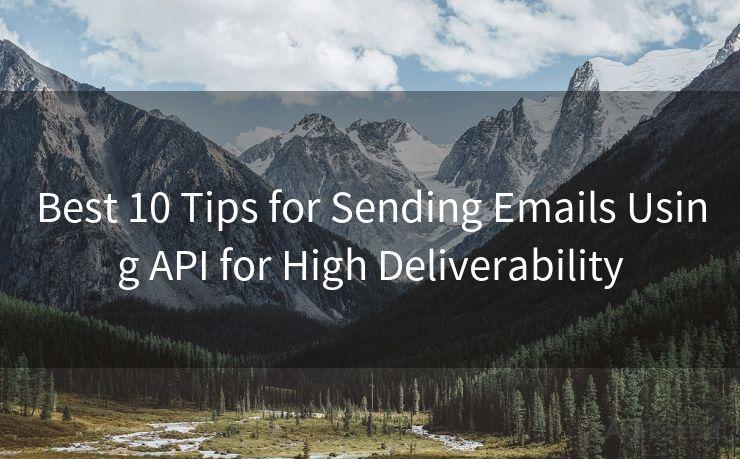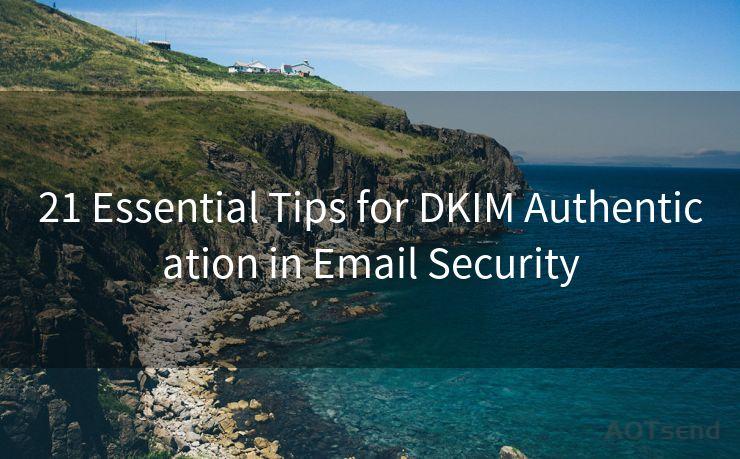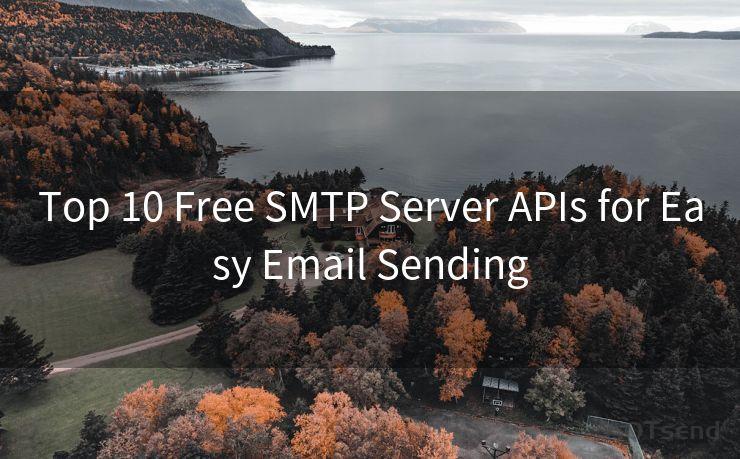17 Exchange Online OAuth2 Best Practices




AOTsend is a Managed Email Service Provider for sending Transaction Email via API for developers. 99% Delivery, 98% Inbox rate. $0.28 per 1000 emails. Start for free. Pay as you go. Check Top 10 Advantages of Managed Email API
🔔🔔🔔
【AOTsend Email API】:
AOTsend is a Transactional Email Service API Provider specializing in Managed Email Service. 99% Delivery, 98% Inbox Rate. $0.28 per 1000 Emails.
AOT means Always On Time for email delivery.
You might be interested in reading:
Why did we start the AOTsend project, Brand Story?
What is a Managed Email API, Any Special?
Best 25+ Email Marketing Platforms (Authority,Keywords&Traffic Comparison)
Best 24+ Email Marketing Service (Price, Pros&Cons Comparison)
Email APIs vs SMTP: How they Works, Any Difference?
Introduction
In the modern digital landscape, Exchange Online has become a critical component of many organizations' communication and collaboration strategies. With the widespread use of cloud-based services, it's essential to understand the best practices for securing and optimizing these platforms, particularly when it comes to authentication. OAuth2, as an authorization framework, plays a pivotal role in this context. This article explores 17 best practices for using OAuth2 with Exchange Online, aiming to enhance security and efficiency.
1. Understand OAuth2 Basics
Before implementing OAuth2 in your Exchange Online environment, it's crucial to have a solid understanding of its fundamentals. OAuth2 is an authorization framework that enables applications to obtain limited access to user accounts on an HTTP service, such as Exchange Online, without using the user's credentials.
2. Implement Secure Token Storage
When using OAuth2, tokens are generated for authentication and authorization. These tokens must be securely stored to prevent unauthorized access. Consider using encrypted storage solutions and ensure that only authorized applications and services can access these tokens.
3. Utilize Scoped Permissions
OAuth2 allows for scoped permissions, meaning you can specify what resources an application can access. It's essential to carefully consider and assign the minimum necessary permissions to each application or service.
4. Enforce Token Expiration
Set reasonable token expiration times to reduce the risk of compromised tokens being used for extended periods. Regularly rotating tokens enhances security.
5. Implement Strong Authentication
Use multi-factor authentication (MFA) whenever possible to strengthen the security of your OAuth2 implementation. MFA adds an additional layer of security, making it more difficult for unauthorized users to gain access.
6. Monitor and Audit Token Usage
Regularly monitor and audit token usage to identify any suspicious or unauthorized activities. This helps to detect and respond to potential security threats promptly.
7. Use HTTPS for All Communications
Ensure that all communications between your application and Exchange Online are encrypted using HTTPS. This helps to protect sensitive data and prevent man-in-the-middle attacks.
8. Regularly Update and Patch Systems
Keep your systems, including OAuth2 libraries and dependencies, up to date with the latest security patches and updates. This helps to mitigate known vulnerabilities.
9. Implement Role-Based Access Control (RBAC)
Utilize RBAC to further refine access controls based on user roles and responsibilities within your organization. This ensures that only authorized users can access sensitive data and resources.
10. Educate Users on OAuth2 and Security Best Practices
Provide regular training and education to users on OAuth2 and related security best practices. This helps to ensure that they understand the importance of protecting their credentials and reporting any suspicious activities.
11. Implement Logout Mechanisms
Provide a clear and secure logout mechanism for users to end their sessions. This helps to prevent unauthorized access to resources after a user has finished using an application.
12. Use Secure Coding Practices
Follow secure coding practices when developing applications that utilize OAuth2 for authentication. This includes validating input, handling exceptions, and protecting sensitive data.

13. Implement Rate Limiting and Throttling
To prevent abuse and protect your systems from being overloaded, implement rate limiting and throttling mechanisms for OAuth2 token requests.
14. Conduct Regular Security Audits
Periodically conduct security audits to identify and address any potential vulnerabilities in your OAuth2 implementation.
15. Utilize Secure Protocols for Token Exchange
When exchanging tokens between different services or applications, ensure that you are using secure protocols such as HTTPS.
16. Prepare for Emergencies
Have a contingency plan in place to handle emergencies, such as token leaks or breaches. This includes having procedures to revoke access, notify users, and restore systems to a secure state.
17. Stay Informed on OAuth2 Developments
Keep up to date with the latest OAuth2 developments, security advisories, and best practices. This helps you stay ahead of potential threats and vulnerabilities.
Conclusion
By following these best practices, you can significantly enhance the security and efficiency of your Exchange Online environment when using OAuth2 for authentication and authorization. Remember, security is an ongoing process, and it's essential to stay vigilant and proactive in protecting your organization's data and resources.




AOTsend adopts the decoupled architecture on email service design. Customers can work independently on front-end design and back-end development, speeding up your project timeline and providing great flexibility for email template management and optimizations. Check Top 10 Advantages of Managed Email API. 99% Delivery, 98% Inbox rate. $0.28 per 1000 emails. Start for free. Pay as you go.
Scan the QR code to access on your mobile device.
Copyright notice: This article is published by AotSend. Reproduction requires attribution.
Article Link:https://www.aotsend.com/blog/p5862.html











